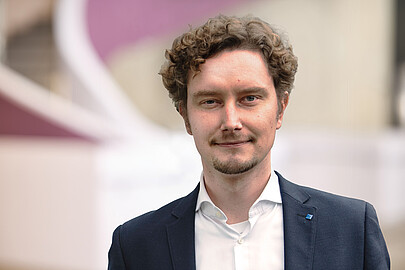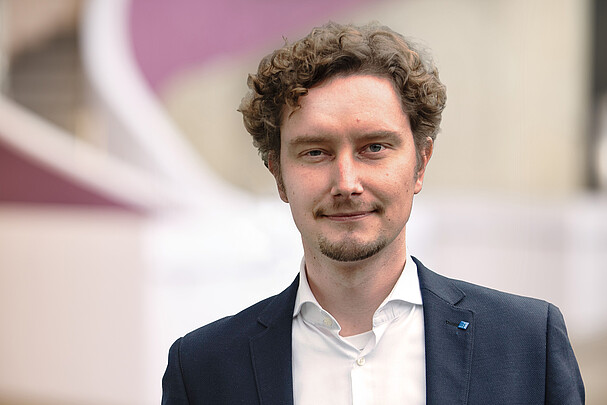Transfer and communication of knowledge for environmentally aware young people to raise interest in STEM (EngageMINT): interest profiles and social interaction
In a changing world, the path to a resource-efficient future requires a considerable amount of effort and domain knowledge in science, technology, engineering, and mathematics (STEM). In contrast, there is a need for research that looks at the impact of environmental topics on the motivation of young people to take up a professional career in STEM fields.
The joint project is developing a digital transfer tool to communicate current knowledge and research results on environmental and climate issues as well as innovative environmental technologies. To this end, the digital transfer tool uses suitable instruments to link up with young people's emotionally motivated environmental interests, thereby harnessing intentions to engage with current environmental policy challenges and promoting interest in STEM subjects.
The sub-project develops and implements a self-assessment tool for transfer in order to provide young people with air-quality research content that matches their interest profiles. New workshop formats aim to support the development of interests and knowledge. An accompanying evaluation analyses attitudes and intentions towards a future activity in the STEM field and identifies optimisation potential for increasing interest in STEM subjects.
![[Translate to English:] gefördert vom Bundesministerium für Bildung und Forschung](https://www.sfz.uni-hannover.de/fileadmin/_processed_/b/5/csm_BMBF_gefoerdert_vom_deutsch_e15de28228.jpg)
![[Translate to English:] gefördert vom Bundesministerium für Bildung und Forschung](https://www.sfz.uni-hannover.de/fileadmin/_processed_/b/5/csm_BMBF_gefoerdert_vom_deutsch_a0ea605402.jpg)
![[Translate to English:] gefördert vom Bundesministerium für Bildung und Forschung](https://www.sfz.uni-hannover.de/fileadmin/sfz/logos/BMBF_gefoerdert_vom_deutsch.jpg)
Citizen science for Research in science classrooms (CitSci@Schools): Material development and teacher training
Classrooms often do not authentically reflect scientific research, but citizen science (CS) projects offer the potential to engage students in genuine research processes and to foster scientific reasoning and identity development in a new experiential space.
To realize the potentials, conditions for succeeding in 1) integrating research processes through CS projects will be identified, 2) used as design specifications for developing teaching materials, and 3) teachers will be trained for implementation. In the first design cycle, prototypes are developed in co-design workshops using anticipated conditions. In the second design cycle, teachers are trained to further develop materials. In both cycles, 4) conditions for success are evaluated through classroom observations and effects on students through questionnaires, and materials are further developed. Materials and trainings are disseminated on OER platforms and through networks.
![[Translate to English:] Logo des Projekts CitSci@Schools](https://www.sfz.uni-hannover.de/fileadmin/_processed_/5/d/csm_logo_citscistascools_81ae5a32f8.png)
![[Translate to English:] Logo des Projekts CitSci@Schools](https://www.sfz.uni-hannover.de/fileadmin/_processed_/5/d/csm_logo_citscistascools_48e3c3425f.png)
![[Translate to English:] Logo des Projekts CitSci@Schools](https://www.sfz.uni-hannover.de/fileadmin/sfz/logos/logo_citscistascools.png)
![[Translate to English:] Logo der Joachim Herz Stiftung](https://www.sfz.uni-hannover.de/fileadmin/_processed_/0/0/csm_JHS_Logo_CMYK_violett_ff78249ce7.jpg)
![[Translate to English:] Logo der Joachim Herz Stiftung](https://www.sfz.uni-hannover.de/fileadmin/_processed_/0/0/csm_JHS_Logo_CMYK_violett_8fb6f053fc.jpg)
![[Translate to English:] Logo der Joachim Herz Stiftung](https://www.sfz.uni-hannover.de/fileadmin/_processed_/0/0/csm_JHS_Logo_CMYK_violett_cbd5a0a50d.jpg)
Cooperations
Contact (at LUH)


30159 Hannover




